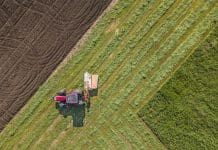The AI Metascience Fellowship Programme: A new £4 million international fellowship programme has been launched to investigate how artificial intelligence (AI) is transforming scientific research
The UK Metascience Unit leads the AI Metascience Fellowship Programme in partnership with UK Research and Innovation (UKRI), The Alfred P. Sloan Foundation in the US, and Canada’s Social Science and Humanities Research Council (SSHRC), and is supporting 29 early researchers across the UK, US and Canada.
The AI Metascience Fellowship Programme is designed to explore the shifts AI is bringing to how science is conducted, evaluated, and understood, with each fellow receiving up to £250,000 for two-year research projects.
AI’s role in scientific practice
The selected projects will create a better picture of AI’s impact on research processes, scientific creativity and the evolution of academic careers.
One of the studies from the University of Manchester will focus on how AI tools are reshaping the day-to-day work and long-term career paths of biomedical researchers. This study will look into the influence of AI on productivity, creativity, and research diversity at different stages of scientific careers.
Some other projects include investigating how AI influences topic selection in scientific fields, whether AI-generated output challenges current standards of understanding and accountability, and how AI could help remove participation barriers for researchers with learning disabilities.
Transforming agriculture through AI
Another standout project is based at the University of Reading. This project will look at how AI can support innovation in agriculture and food science.
The aim is to understand how AI can help farming become more sustainable and efficient, drawing comparisons with how digital tools have transformed industries like banking.
By focusing on the intersection of AI and agricultural practice, the research hopes to provide insights into boosting productivity while ensuring environmental protection.
Understanding the future of science: AI Metascience Fellowship Programme
The AI Metascience Fellowship Programme is not focused on general AI ethics; instead, it looks into the role of AI within scientific discovery.
Key areas of investigation include how AI is changing the structure of research institutions, the decision-making processes behind scientific funding, and how AI tools may shift the political economy of science.
These efforts are intended to support policymakers, funders, and industry in understanding both the opportunities and risks posed by AI. From improving creativity and accessibility to raising questions about research reliability and reproducibility, the programme aims to provide evidence-based insights that can guide responsible AI adoption in science.
Funding and collaboration
The selection process itself is different from traditional funding models. Applicants participated in a distributed peer review system, assessing each other’s proposals. This approach aimed to create transparency, community engagement, and a wider range of expertise in the evaluation process.
In 2026, all fellows will gather for a fully funded summer school, helping to establish a cross-border community of researchers dedicated to understanding AI’s role in shaping scientific futures.
With 18 fellows based in the UK, six in the US, and five in Canada, the programme reinforces international collaboration in emerging areas of AI research. It also reflects a growing commitment among governments and research bodies to ensure that the rapid development of AI technologies is matched by equally agile research into their broader impacts.











